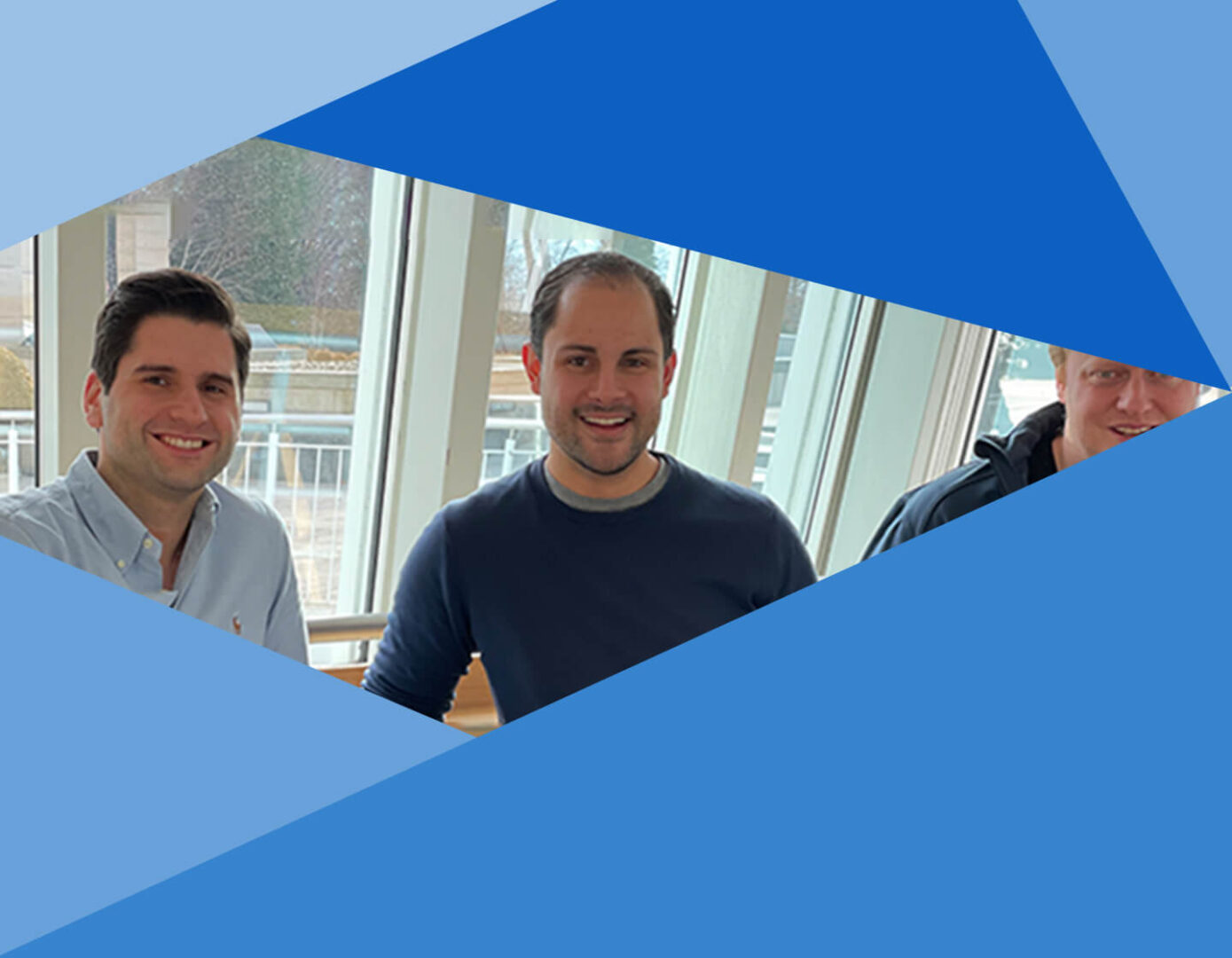
The first time Juan Pablo Muñiz came across IMD was as a six-year-old when he found an old photograph of La Résidence, the 18th century stone mansion at the heart of the campus. His father, César Muñiz, explained the building housed the classrooms at IMEDE in Switzerland where he spent a year in 1985 earning his MBA. Back then, if participants were late for class, they had to climb in through the windows, he recalled.
“I thought it would be cool to go to school in this house,” said Juan Pablo, who became so fixated on the prospect of one day attending IMD that during a family holiday to Switzerland when he was 21, he refused to travel to Lausanne. “I only wanted to go if I was a student.”
That dream became a reality in January this year when his father drove him to the campus for the first time. The buildings may have changed radically since César’s day with classes now held in modern auditoria, but there is still the same spirit of camaraderie among classmates built up through many late nights working hard on projects and coursework.
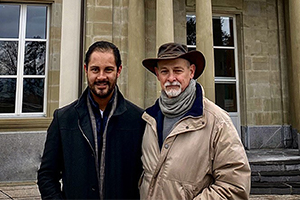
It was over a beer in the Maersk building that Juan Pablo, who comes from Mexico, discovered he wasn’t the only participant in this year’s cohort with a family connection. Campbell Brown, an Australian who grew up in Singapore, shared that his father, Ian, had attended IMI in Geneva in 1984. Within the first month they had also met Rüdiger Mendritzki, whose father, Jürgen, came to IMEDE in 1983. IMI and IMEDE merged in 1990 to form IMD.
While it is not uncommon for family members to attend the same academic institution, having three second-generation MBAs in a class of 100 is rare. Among their motivations for choosing IMD, were the program’s strong focus on leadership, the work IMD does to involve trailing partners and families, as well as an emotional connection.
“My father was super proud when I told him I was admitted,” said Rüdiger.
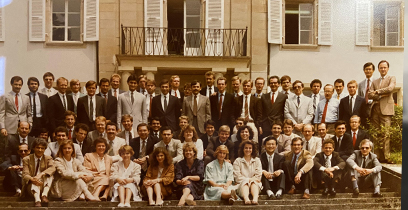
Circular connection
The three MBAs have bonded both inside and outside the classroom. Campbell was put in a group with Rüdiger for the first half of the program, while Juan Pablo and Campbell worked on the same International Consulting Project (ICP). Despite not having any classes together, Rüdiger and Juan Pablo discovered a shared a love of cycling and competed in the 180km Cyclotour du Léman in October.
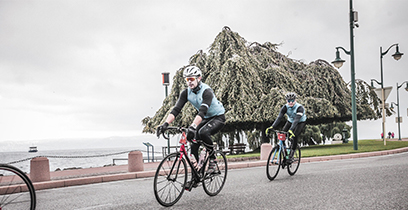
One highlight of the program which has remained since the days of their fathers is the seven-week ICP which gives participants the opportunity to tackle real-world challenges faced by industry with exposure to top management. At IMEDE, César worked with oilfield services firm Schlumberger on its exhaust pipe division across Europe, while Jürgen developed an expansion strategy for the hotel division of Swedish company Sveriges Allmänna Restaurangaktiebolag in Asia, which involved travel to Malaysia and Singapore.
Over at IMI, Ian carried out a strategic review of global operations for Burmah Oil which included trips to London, New York and Bahamas and culminated in a presentation to the CEO in London. Burmah Oil later implemented all the ICP team’s strategic recommendations over a two-year period.
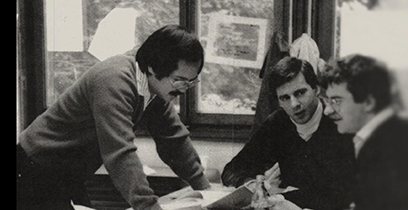
Thirty years later, Rüdiger and his ICP team were also focussed on the oil and gas industry and helped Shell understand how to adapt to the megatrends shaking up its lubricant business. Meanwhile, Campbell and Juan Pablo teamed up to explore growth opportunities for a client operating in a market dominated by several elite firms and presented their findings to the board.
Tapping into the subconscious
One change to the program since the 1980s is the stronger focus on personal development, reflecting a greater emphasis today on leaders who can be authentic and vulnerable. A highlight for Campbell was the leadership stream, which includes 20 hours with a Jungian psychoanalyst throughout the year.
“This was something I would never have thought about doing before the course, but nevertheless it’s handy to catch some of the subconscious ways that I might interact with teams and groups,” he said.
A further benefit is the boutique nature of the program – with just 100 participants – which encourages participants to open up and share their personal challenges with the class. Hearing these experiences has given Campbell greater sensitivity as a leader.
“A lot of the time when you are working with someone, you judge them off a quite superficial surface: what have you delivered to me recently or what can you deliver to me? When you hear more personal stories about what this person has gone through you understand a lot better about how they work.”
Lifelong friends
An overriding takeaway for all participants and their fathers is the friendships they have made during the year-long program. Rüdiger’s godfather was a classmate of his father at IMEDE, while César and Ian are still in regular contact with peers from their respective cohorts.
Following their MBAs, Ian went to work for Macquarie, while both Jürgen and César joined McKinsey. Consultancy is still a popular career option for today’s cohort with around 20 of the current participants going to work in the field. Campbell will take up a position with Bain & Company in Kuala Lumpur.
Rüdiger plans to return to Zurich and his previous employer, Credit Suisse, in a Vice President role. Thanks to the MBA, his personal network in the city has more than doubled and he is excited about being surrounded by a group of people who can act as a sounding board for professional challenges and ideas.
While it was a family connection that brought Juan Pablo to IMD and Switzerland, it is the substitute family he has made over the past year that has convinced him to stay in the country, for at least the next few years, as he embarks on the next stage of his career.
“What made me want to stay was the family I developed here and the relationship with my classmates. I’ve met a group of people with whom I can not only have a lot of fun, but also with whom I can have professional talks that help me develop as a human being.”


